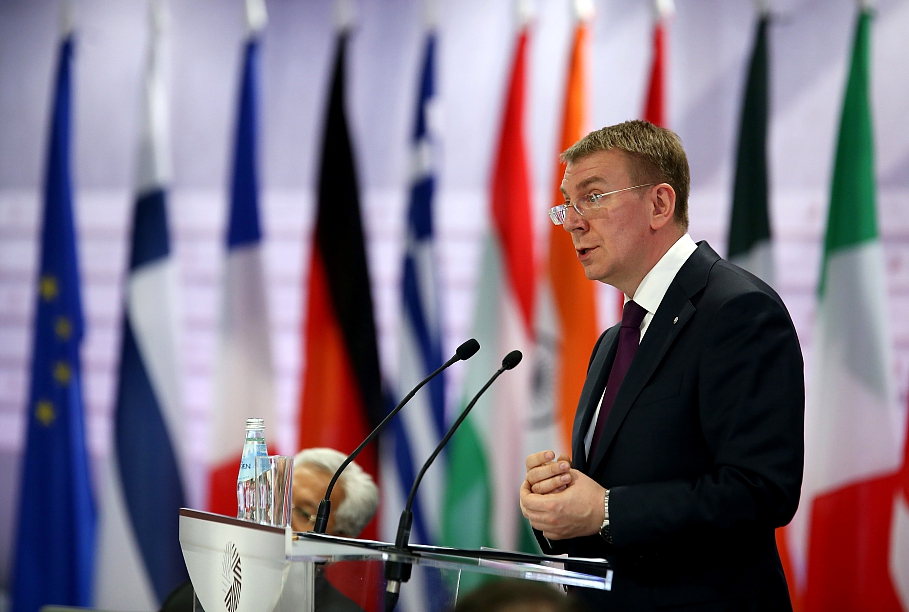Introducing his overview of the current geopolitical situation, Foreign Minister Edgars Rinkevics predicted 2016 would be a challenging year all round.
"From the perspective of international and security policy, 2016 is going to be difficult, intense and restless, since the whirlpool of endless crises across the globe is a reality that we must deal with on an almost daily basis," he said.
On relations with Russia he gave an uncompromising line.
"We must use clear language when speaking of Latvia’s security. Recent years have brilliantly highlighted the fact that our eastern neighbor is a revisionist super-power prepared to use military force to satisfy its ambitions, changing the borders of independent states, as in the case of the illegal and illegitimate annexation of Crimea," Rinkevics said.
"Therefore, it is in Latvia’s interest to strengthen NATO’s collective defence and deterrence policy. It is based on NATO response capabilities and military presence in our region. The independence of our country is ensured only by an effective and convincing deterrence policy. The Allied military presence is an integral part of any successful deterrence policy."
The forthcoming NATO summit in Warsaw should decide upon "an Allied presence in the Baltic States that is long-lasting and worth taking seriously," Rinkevics said.
NATO should also work more on its "strategy for the prevention of hybrid warfare," he suggested to include "effective allied support for any member in any phase of hybrid warfare," a clear indication of ongoing worries that Russia might try to implement its dishonest strategies from Crimea and Donbas elsewhere.
Development of independent public media with appropriate funding should also play a key role in combatting Russian "information warfare", Rinkevics said.
"An information war cannot be easily won. Nevertheless, the response to this challenge calls for the involvement of the general public as a whole and this involvement is based on information literacy of our society: knowing the facts, being able to evaluate them critically, and discussing them with one another...This should be kept in focus when intensifying dialogue between policy makers and media professionals.
"And this is not conceivable without appropriate funding. I encourage seeking more actively the solutions for the media, especially public media, to address the broadest possible audiences, including young people and national minorities."
The United States remains Latvia's "main strategic partner", the Foreign Minister said, and "an ally Latvia can rely on", citing the presence of American troops on Latvian soil as proof.

































